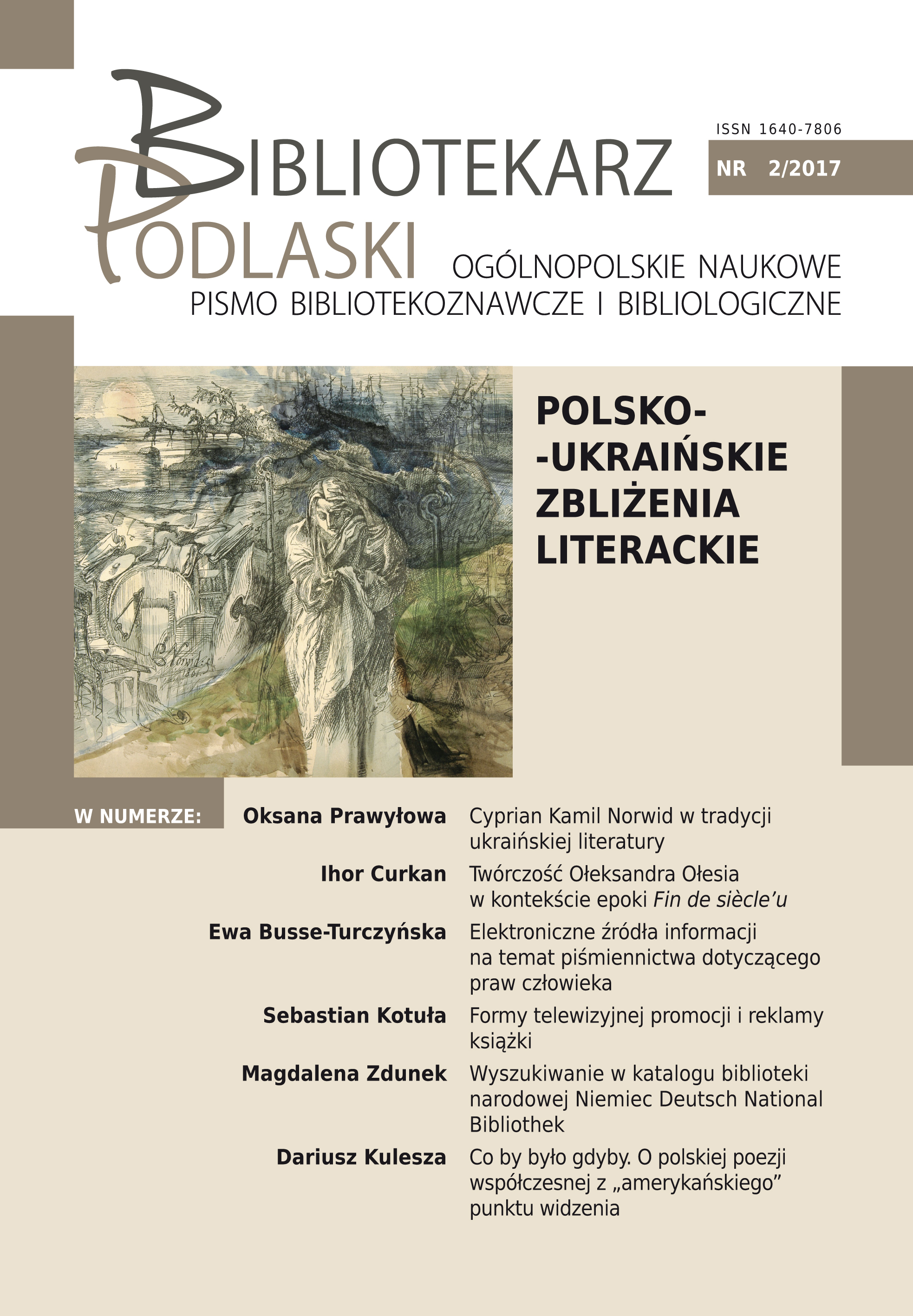Abstract
English authors of travel journals created an ambivalent image of the Ukrainian-Polish borderlands inhabitants in the tradition of English romantic literature. The reception of the Eastern Europe territory as a new romantic space allowed the English traveler to interpret the inhabitants of this land as representatives of a little-known ethnos. The duality of the borderlands inhabitants imagotheme appeared in changing literary style from a non-fictional to a subjective one.
References
Alcock Th., Travels in Russia, Persia, Turkey, and Greece, London: Clarke and Son, 1831.
Alexander J. E., Travel to the seat of war in the East, through Russia and the Crimea, in 1829, London: Henry Colburn and Richard Bentley, 1830.
James J. Th., Journal of a Tour in Germany, Sweden, Russia, Poland, during the years 1813 and 1814 by J. T. James, Esq. student of Christ Church, Oxford, Vol. II, London : Albemarle-stkelt, 1817.
Locke J, Some Thoughts Concerning Education, London: Paternoster-Row, 1752.
Morton E., Travels in Russia and a residence in St. Petersburg and Odessa in the years 1827–1829, London: Longman, Rees, Orme, Brown, and Green, Paternoster-Row, 1830.
Ramble R., Travelling opinions and sketches in Russia and Poland, London: John Macrone, 1836.
Said E., Culture and Imperialism, New York: Vintage Books, 1994.
Thompson E., Trubadury Imperii: Rosiiska literatura i kolonializm, Kyiv: Osnovy, 2006.
Yurchuk O. , V tini imperii. Ukrainska literatura v svitli postkolonialnoi teorii, Kyiv: Academia, 2013.
Articles published in the “gold open access” mode on the basis of a non-exclusive license agreement between the publisher and the author. Permitted use:
- the publication may be read and stored on any device,
- the publication may be cited (with obligatory reference to the author, the title of the text, as well as the full title, bibliographic address of the issue and page of the journal)
The editorial team of “Bibliotekarz Podlaski” implements an open access policy by publishing materials in the form of the so-called Gold Open Access. From volume 42 (issue 1/2019), the journal is available under the Creative Commons license (Attribution – ShareAlike: CC BY-SA).
The key declarations of the Open Access and Open Science movement, which we fully support, are available on the CEON Open Science website.
COPYRIGHT:
The editorial team of “Bibliotekarz Podlaski” implements an open access policy by publishing materials in the form of the so-called Gold Open Access. The journal is available under the Creative Commons license – Attribution – ShareAlike 4.0: International: CC BY-SA 4.0).
The key declarations of the Open Access and Open Science movement, which we fully support, are available on the CEON Open Science website.
“Bibliotekarz Podlaski” allows its readers to read, download, copy, distribute, print, search and link to the full content of articles. We enable full, immediate, unlimited (both in a territorial, temporal and technical sense) open access to all published content, in accordance with the principle that freely available research increases and accelerates the global development of science and the exchange of knowledge.
The editorial team of “Bibliotekarz Podlaski” encourages authors to place articles published in the journal in open repositories (after the review or the final version of the publisher), provided that a link to the journal’s website is provided.
The journal does not charge the authors any fees for accepting and publishing their texts.

